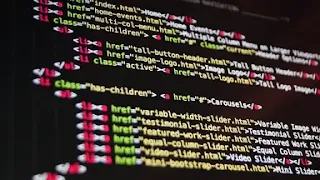The Future of Coding: Trends and Technologies Shaping the Programming Landscape
In the ever-evolving realm of technology, the future of coding holds exciting promises and challenges. As we stand on the cusp of a new era, several trends and technologies are reshaping the programming landscape, influencing the way developers write, deploy, and maintain code. In this exploration of the future of coding, we'll unravel the key trends and technologies that are set to redefine the way we approach software development.
**1. Artificial Intelligence and Machine Learning Integration
Artificial Intelligence (AI) and Machine Learning (ML) are no longer futuristic concepts; they are becoming integral parts of the coding landscape. Developers are increasingly incorporating AI and ML into their applications, leveraging these technologies for enhanced data analysis, pattern recognition, and automation. This integration not only accelerates development processes but also opens new possibilities for creating intelligent and adaptive software.
2. DevOps and Continuous Integration/Continuous Deployment (CI/CD)
The DevOps philosophy, coupled with CI/CD practices, continues to gain momentum. DevOps aims to bridge the gap between development and operations, fostering collaboration and efficiency throughout the software development lifecycle. CI/CD pipelines automate the testing and deployment processes, enabling developers to release code faster and more reliably. The future of coding is undoubtedly intertwined with these practices, as they promote agility, reduce errors, and streamline the delivery of high-quality software.
3. Serverless Architecture
Serverless computing is revolutionizing the way applications are built and deployed. With serverless architecture, developers focus solely on writing code without the need to manage server infrastructure. Cloud providers handle the backend operations, allowing for greater scalability and cost-efficiency. This trend is set to reshape coding practices by emphasizing modular, event-driven programming and promoting a more streamlined development experience.
4. Low-Code and No-Code Development
As the demand for software solutions continues to rise, there is a growing emphasis on making coding more accessible to non-developers. Low-code and no-code development platforms empower individuals with varying technical expertise to create applications using visual interfaces and pre-built components. While this trend raises questions about the role of traditional coding, it also opens doors to a broader community of creators contributing to the world of software development.
5. Quantum Computing
Although still in its early stages, quantum computing is on the horizon, promising unparalleled computing power. While quantum programming languages are in development, the potential impact on coding paradigms is undeniable. Developers will need to adapt to harness the capabilities of quantum computers, which could revolutionize fields such as cryptography, optimization, and complex simulations.
6. Edge Computing
With the rise of Internet of Things (IoT) devices, edge computing is emerging as a critical trend in coding. Edge computing involves processing data closer to the source (at the "edge" of the network) rather than relying solely on centralized cloud servers. This shift is transforming how developers design and optimize applications, ensuring responsiveness and efficiency in an increasingly interconnected world.
Conclusion: Embracing the Evolution
As we peer into the future of coding, it's evident that change is the only constant. Developers need to be adaptive, embracing new technologies and methodologies to stay at the forefront of innovation. The trends mentioned here represent a glimpse into the coding landscape of tomorrow, where the synergy of AI, DevOps, serverless architecture, low-code development, quantum computing, and edge computing will shape a new era of software development.
In conclusion, the future of coding is an exciting journey into uncharted territories, offering both challenges and opportunities. By staying informed, learning continuously, and embracing the evolution of technology, developers can position themselves to thrive in a dynamic and ever-changing coding landscape. As we navigate the future, one line of code at a time, the possibilities are limitless.
See Also:


Comments
Post a Comment